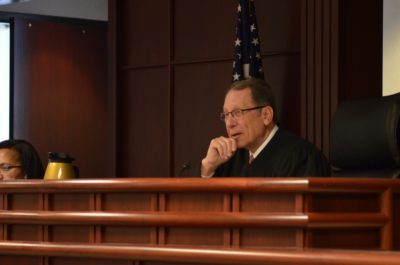
Superior Court Judge David Lee will soon receive a package of proposals to advance public schooling in North Carolina over the course of this decade. The proposals and the judge’s subsequent order surely will draw on an “action plan,” known as the WestEd report, issued by education researchers before the COVID-19 contagion forced schools to close across the state and nation.
Released publicly in December 2019, the 300-page WestEd report in a certain sense qualifies as old news, overshadowed by pandemic headlines and a raging debate over reopening schools. And yet, the report provides a catalog of unfinished business in the state’s task of affording every young North Carolinian an opportunity for a sound, basic education.
Thus it’s worth revisiting the report’s key observations and findings as context for the policy and budget debates and deliberations soon to intensify. Judge Lee has already signed a consent order for a one-year plan for spending $426.9 million in 2021, the first increment of an eight-year plan. Democratic Gov. Roy Cooper will present his ideas in a State of the State address and a comprehensive budget proposal to the Republican-majority General Assembly.
The WestEd report acknowledges North Carolina’s record of “promising initiatives,” for example, Smart Start, NC Pre-K, Teaching Fellows, and Early College High Schools. During the 1990s, says WestEd, North Carolina students made the strongest gains among the states in mathematics, and the state was the “most successful” in narrowing the achievement gap between white and minority students.
Still, in light of tightened budgets since the Great Recession, and profound changes in the composition of public school enrollment, along with social, economic, and technological changes, WestEd declares that “the state now faces greater challenges than ever” in meeting the constitutional right of every student as defined in the Leandro decision of 1997. No doubt the state now confronts challenges intensified by the pandemic and not foreseen in the WestEd report.
“In the last two decades,” says the report, “North Carolina’s public school student population has also grown by about 25% overall, and the number of children with higher needs, who require additional supports to meet high standards, has increased significantly. The number of economically disadvantaged students … has grown from 470,316 in 2000–01 to 885,934 in 2015–16, an 88% increase over 15 years.”
Even as enrollment grew, the report says, the total number of teachers employed in the state declined by 5% from 2009 to 2018. The report points to teacher pay “far below national benchmarks” and to “ongoing struggles with recruiting and retaining qualified teachers in high-poverty schools, with some of the rural districts losing more than 20% of their teachers in a single year.
“For students who come from underserved populations, an effective, experienced, and qualified teacher is even more critical to their educational success,” says the report. “Yet the promise of a competent, certified, well-trained teacher is too often left unfulfilled for economically disadvantaged students and students of color.”
WestEd finds that many North Carolinians have access to high-quality early childhood education — but not adequate availability in low-wealth communities.
“Unfortunately, there is a shortage of available Pre-K slots across North Carolina, and only about half of eligible children are served,” says the report. “Families pay approximately two thirds of all early childhood costs, and more than 50,000 children are on waiting lists for subsidies.”
WestEd reports that a third of traditional public schools and a fourth of public-funded charter schools have a high-poverty enrollment, amounting to more than 400,000 students.
“Students’ equal opportunity for a sound basic education is limited in high-poverty schools by a lack of supports and services to help mitigate barriers to learning associated with adverse out-of-school conditions in communities of concentrated poverty,” says the report.
As an “action plan,” the WestEd report is replete with policy and budgetary recommendations over which legislators and executive branch officials will have differences and perhaps alternatives. Representative government gives rise to give-and-take debate. WestEd’s extensive data analyses and findings suggest two questions by which to evaluate decision-making over the weeks and months ahead:
Does a legislative measure or budgetary provision address the real conditions and diminish the deficiencies of North Carolina’s schools? Does a plan, proposal, or initiative move North Carolina closer to abiding by the law — and thus to advancing more of its young people toward the education to which they have a constitutional right?
Recommended reading



